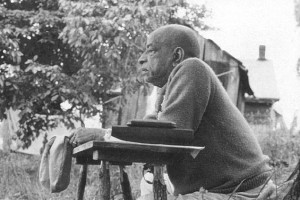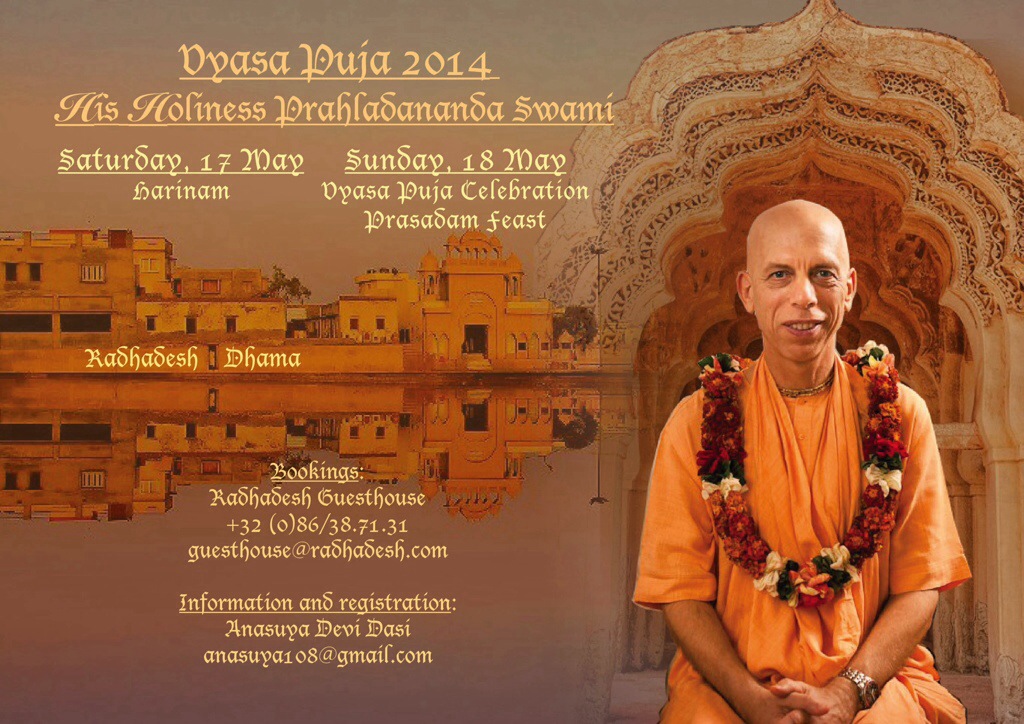
Srila Prabhupada Encourages Communication, Cooperation & “Doing The Needful” As The “Best Program” For Developing New Vrindaban - Nov 1968.
From a series of letters written by Srila Prabhupada outlining his vision for New Vrindaban.
Thanks to Vanipedia for the source material.
——————————————————————
November 30, 1968
My Dear Kirtanananda,
Please accept my blessings. I thank you very much for your letter of Nov. 7, 1968, and I have duly noted the contents with great satisfaction. It is very good news that so many students are attending your kirtan programs in Columbus, and I think this will develop into a very prosperous center very soon.
So far your question whether you should stay at New Vrindaban, or help Hayagriva at Columbus, the best thing is to consult with Hayagriva, and work jointly. And do whatever needs to be done. That is the best program.
I think by Krishna’s Grace everything is improving nicely with the New Vrindaban idea, and please continue to make your program in this way.
I hope you are all well there, and convey my blessings to Ranadhira, Hrsikesa, and Pradyumna and any others; there also I think Mahavisnu das and Rama devi are also, and please convey my blessings to them along with their little son, Haridasa. I very much appreciated also the nice cartoon-advertisements for your OSU Yoga society, and I think Ranadhira must have done them so nicely. Please thank him and encourage him to do much more such nice artistic work.
Your ever well-wisher,
A.C. Bhaktivedanta Swami
P.S. Please offer my blessings to Dr. Henderson. He is our old friend and let us join together to spread K.C. all over the world.

 According to Skanda Purana when Raja Indradyumna installed the wooden deities he arranged this bathing ceremony. This day considered to be the birth-day of Lord jagannath. Held in the full-moon day of the month of Jyestha this festival is also simultaneously held in all other important Puri, it attracts thousands of visitors and pilgrims from all over the country. Read more ›
According to Skanda Purana when Raja Indradyumna installed the wooden deities he arranged this bathing ceremony. This day considered to be the birth-day of Lord jagannath. Held in the full-moon day of the month of Jyestha this festival is also simultaneously held in all other important Puri, it attracts thousands of visitors and pilgrims from all over the country. Read more ›  According to Skanda Purana when Raja Indradyumna installed the wooden deities he arranged this bathing ceremony. This day considered to be the birth-day of Lord jagannath. Held in the full-moon day of the month of Jyestha this festival is also simultaneously held in all other important Puri, it attracts thousands of visitors and pilgrims from all over the country. Read more ›
According to Skanda Purana when Raja Indradyumna installed the wooden deities he arranged this bathing ceremony. This day considered to be the birth-day of Lord jagannath. Held in the full-moon day of the month of Jyestha this festival is also simultaneously held in all other important Puri, it attracts thousands of visitors and pilgrims from all over the country. Read more ›  Birmingham 24 Hour Kirtan festival. This hugely successful event is hosting over 1,500 people during the course weekend and runs for over 24 hours.
Date: Saturday 10th May 2014 – Sunday 11th May 2014
Time: Opening ceremony: Saturday 2pm, followed by ‘Meditations on the Holy Name’ by HH Sacinandana Swami and then 24+ Hours of non-stop kirtan.
Birmingham 24 Hour Kirtan festival. This hugely successful event is hosting over 1,500 people during the course weekend and runs for over 24 hours.
Date: Saturday 10th May 2014 – Sunday 11th May 2014
Time: Opening ceremony: Saturday 2pm, followed by ‘Meditations on the Holy Name’ by HH Sacinandana Swami and then 24+ Hours of non-stop kirtan.  Retreat with Bhakti Vijnana Goswami and Uttama Shloka prabhu.
Retreat with Bhakti Vijnana Goswami and Uttama Shloka prabhu. 





 Fasting..................... on May 10th
Fasting..................... on May 10th Appearance of Lord Nrsimhadeva
Appearance of Lord Nrsimhadeva Sponsor Kalash
Sponsor Kalash Canadian Bus Tour
Canadian Bus Tour

 Srimati Radharani, from Italy, daughter of Sriman Matsyavatara prabhu ACBSP, has obtained a record number of subscribers and viewership for her Youtube channel of 2.041.000 viewers so far, about vegetarian cooking!
Srimati Radharani, from Italy, daughter of Sriman Matsyavatara prabhu ACBSP, has obtained a record number of subscribers and viewership for her Youtube channel of 2.041.000 viewers so far, about vegetarian cooking!  Indradyumna Swami: Just outside Baku, Azerbaijan on the Caspian Sea is an ancient site the local people call Atashgah, or "the home of fire." From time immemorial yogis, ascetics and rishis from India would come here to worship Agni, in the form of fire. The site is situated on a natural gas field. Before the oil reserves were depleted by mining in the late 1800's burning gas would come up through slits in the ground. Yogis built a temple compound here and lived in small rooms where they would perform severe penance and austerities. Several travelers from Europe in the 16th and 17th centuries mentioned this place in their writings. Eichwald, a geologist from Germany, wrote that Lord Krsna, Ganesh and Siva were worshipped at this place. It is now a protected heritage site and well maintained by the government. It was my fourth visit to Atashgah and Bada Hari’s prabhu’s first.
Indradyumna Swami: Just outside Baku, Azerbaijan on the Caspian Sea is an ancient site the local people call Atashgah, or "the home of fire." From time immemorial yogis, ascetics and rishis from India would come here to worship Agni, in the form of fire. The site is situated on a natural gas field. Before the oil reserves were depleted by mining in the late 1800's burning gas would come up through slits in the ground. Yogis built a temple compound here and lived in small rooms where they would perform severe penance and austerities. Several travelers from Europe in the 16th and 17th centuries mentioned this place in their writings. Eichwald, a geologist from Germany, wrote that Lord Krsna, Ganesh and Siva were worshipped at this place. It is now a protected heritage site and well maintained by the government. It was my fourth visit to Atashgah and Bada Hari’s prabhu’s first.